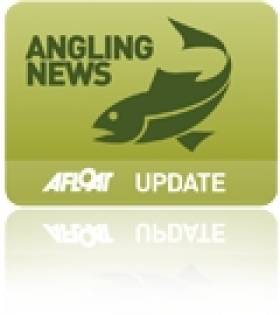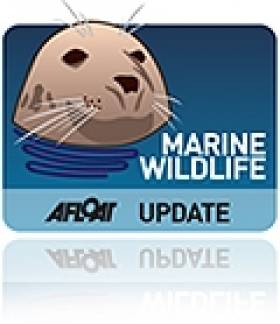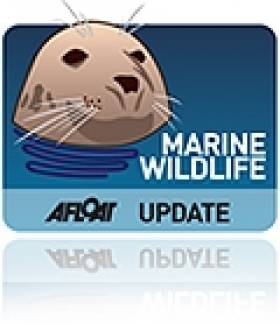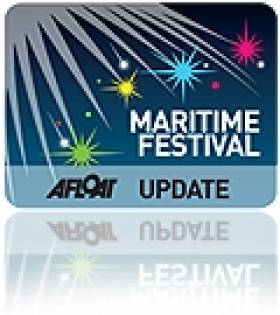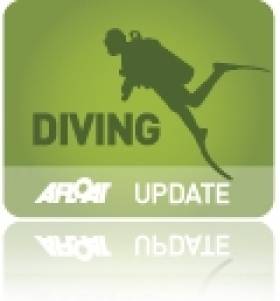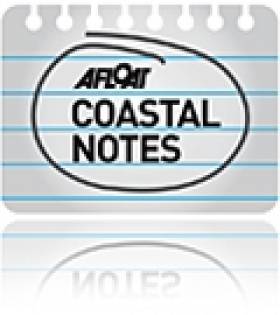Displaying items by tag: Co Galway
Loughrea Lad Takes Connacht Youth Fly-Tying Title
#ANGLING - Ciaran Reilly was awarded the title of best all-round fly-dresser for 2012 at the Connacht Youth Fly-Tying Championships in Loughrea, Co Galway recently, The Irish Times reports.
The 12-year-old from Loughrea is now set to captain the Connacht team in the national championships later this year. Runners-up were Conor Cunningham from Loughrea and Ryan Binley from Foxford.
“It was delightful to see so much enthusiasm among the youngsters, all eager to secure a place on the Connacht team,” said judge and former fisheries inspector Danny Goldrick.
The event on 21 January was run by the Western Lakes’ Angling School on behalf of Connacht Angling Council.
Omey Island Whale Buried at Sea
#MARINE WILDLIFE - The Irish Times reports that the sperm whale that was stranded in Connemara at the end of last year has been buried at sea.
The 13-metre whale carcass has attracted thousands of onlookers to Omey Island in Co Galway.
As previously reported on Afloat.ie, the sperm whale was found beached with a broken lower jaw and shed of its skin.
The whale carcass was towed out to sea west of High Island on Thursday after being deemed too large to bury on land.
"Chances are it died offshore and got washed in with the wind," said Dr Simon Berrow of the Irish Whale and Dolphin Group (IWDG).
The IWDG added that such strandings were relatively common, although as reported on Afloat.ie last year there has been growing concern over the rising number of dolphin deaths along the south coast in particular.
Whales, Dolphin Found Beached on West Coast
#MARINE WILDLIFE - Three whales and a dolphin were found beached over the past few days along Ireland's west coast, according to the Belfast Telegraph.
Dr Simon Berrow of the Irish Whale and Dolphin Group confirmed that reports had been received of a bottlenose whale on White Strand in Co Clare, a pilot whale on Fintra Beach in Co Donegal and a dolphin in Silverstrand, Co Galway - all found dead.
The latest find was a male sperm whale stranded on Omey Island in Co Galway, shed of its skin and with a broken lower jaw.
"Chances are it died offshore and got washed in with the wind," said Berrow.
The IWDG said such strandings were relatively common, although as reported on Afloat.ie earlier this year there has been growing concern over the rising number of dolphin deaths along the south coast in particular.
Dr John de Courcy Ireland Remembered at Connemara Maritime Festival
Ireland's leading maritime histortian will be remembered during Conamara Sea Week, which starts next Friday.
The 10-day programme celebrating the west of Ireland's rich maritime heritage kicks off just two days after the centenary of the late Dr John de Courcy Ireland, who tirelessly documented Ireland's relationship with the sea in parallel with a distinguished career as a political activist.
According to The Irish Times, he will be remembered during a conference on 'The Sea as Inspiration' on Saturday 29 October in Letterfrack, Co Galway.
Education and arts are major themes of the maritime festival, which will also feature an exhibition of works from emerging artists.
For more details visit the website of the Conamara Environmental Educational and Cultural Centre at ceecc.org.
Efforts Resume to Recover Body of Cave Diver
Efforts are resuming today to recover the body of a Polish man who died while cave diving near Gort in Co Galway.
The Irish Independent reports that Artur Kozlowski, 34, failed to emerge as expected from the flooded cave he was exploring solo on Monday afternoon.
His body was located yesterday evening by rescuers in the deepest section of the cave, 52m below the surface.
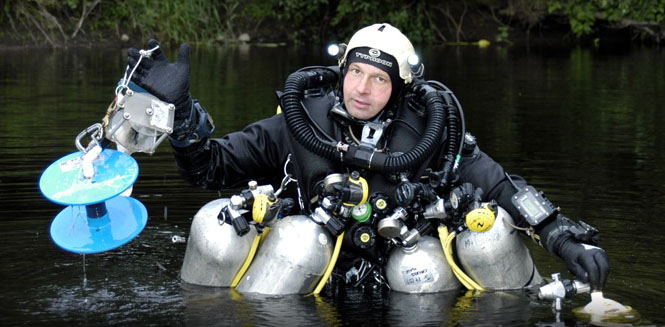
Cave Diver Artur Kozlowski
Kozlowski - known to friends as Artur Conrad - had been living in Ireland for several years and was regarded as one of Ireland's most experienced cave divers. He was previously highlighted on Afloat.ie for his lecture on cave diving at NUI Galway late last year.
He was also the holder of a number of diving records in the UK and Ireland, including longest and deepest traverse of a cave at 103m.
He had spent the last two years exploring the subterranean cave network in south Galway, and was on the final day of an expedition this week when tragedy struck.
Friend and diver Jim Warney, who found Kozlowski, said it took an hour to locate the body in a narrow passage. His oxygen tanks - which were known to have enough air for at least six hours - and a guide rope were still attached.
Rescuers have requested assistance from a UK dive rescue team to help recover the body.
The Irish Independent has more on the story HERE.
Corrib Pipeline Go-Ahead Rests With Energy Minister
Energy Minister Eamon Ryan will issue a decision "in the coming weeks" on Shell Ireland's plans to complete the Corrib gas pipeline, The Irish Times reports.
The news follows yesterday's ruling by An Bord Pleanála which approved revised plans final section of the controversial pipeline.
Shell also requires licencing from Minsiter for the Environment John Gormley and the Environmental Protection Agency (EPA) for the completion of the pipeline under the conservation area of Sruwaddacon esturary to Shell's Ballinaboy gas terminal.
It would be a further two years before the pipeline is fully operational.
An Bord Pleanála's Inspector Martin Nolan commented that the "clarity and transparency" of Shell's revised application gave "confidence that the safety of the public is fully protected".
However planning was only approved with 58 conditions related to the construction and management of the 8.3km pipeline - including extra security at the landfall valve at Glengad, which has raised the ire of local residents at last year's oral hearings.
The Irish Times has more on the story HERE.



























